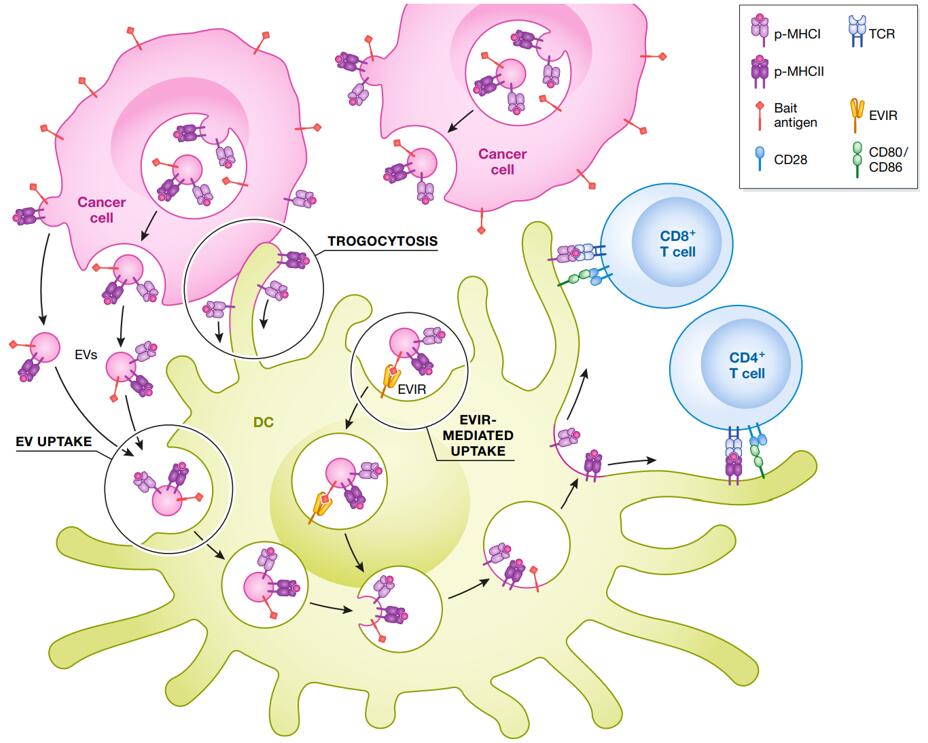Dendritic cells (DCs) are a type of immune cell that play a crucial role in the activation and regulation of the immune system. They are known for their capacity to capture, process, and present antigens to other immune cells, such as T cells.
 Figure 1. Exploring and exploiting dendritic cell cross-dressing in cancer.[1]
Figure 1. Exploring and exploiting dendritic cell cross-dressing in cancer.[1]
The process of tumor killing by dendritic cells involves several steps:
- Antigen capture: DCs are specialized in capturing antigens from tumor cells, either directly or through phagocytosis of tumor cell debris. They can recognize tumor-associated antigens that are present on the surface of tumor cells or released into the surrounding environment.
- Antigen processing and presentation: After capturing the antigens, DCs process them into smaller peptide fragments and present them on their cell surface in the context of major histocompatibility complex (MHC) molecules. This allows T cells, particularly CD8+ cytotoxic T cells, to recognize the specific antigens presented by DCs.
- T cell activation: When DCs present tumor antigens to T cells, it triggers the activation and proliferation of tumor-specific T cells. This activation process involves the recognition of the antigen-MHC complex by the T cell receptor (TCR) on the T cell surface, as well as the interaction between co-stimulatory molecules on DCs (such as CD80 and CD86) and their receptors on T cells (such as CD28).
- T cell tumor killing: Activated T cells, particularly CD8+ cytotoxic T cells, are capable of directly killing tumor cells. They release cytotoxic molecules, such as perforin and granzymes, and induce apoptosis (programmed cell death) in the tumor cells. Additionally, activated T cells can secrete cytokines like interferon-gamma (IFN-γ) that further enhance the immune response against tumors.
DC-mediated tumor killing activity refers to the ability of dendritic cells to specifically recognize and eliminate tumor cells. Dendritic cell-mediated tumor killing activity holds promise for various applications, including dendritic cell vaccines, adjuvant therapy, personalized immunotherapy, and combination therapies.
Creative Bioarray is committed to advancing the field of dendritic cell-mediated tumor killing through cutting-edge research, innovative product development, and expert services. At Creative Bioarray, our team of experts has developed highly efficient methods for isolating and culturing dendritic cells from various sources, such as monocytes or peripheral blood. We employ optimized protocols to generate mature dendritic cells capable of effectively presenting tumor antigens.
Reference:
1. Martinez-Usatorre, Amaia, and Michele De Palma. "Dendritic cell cross-dressing and tumor immunity." EMBO molecular medicine vol. 14,10 (2022): e16523. doi:10.15252/emmm.202216523
* For scientific research only
 Figure 1. Exploring and exploiting dendritic cell cross-dressing in cancer.[1]
Figure 1. Exploring and exploiting dendritic cell cross-dressing in cancer.[1]